Steering committee members
The Steering Committee provides leadership and guides the development and implementation of the ACE vision. It also works to facilitate the establishment of the ACE thematic and Specialist Groups, identify and initiate fundraising opportunities, strengthen partnerships and promote membership.
The steering committee members bring together people from different disciplines within our four overarching themes: Earth, Life, Ecosystems, Society.
Director - Professor Emma Cunningham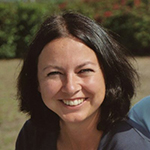 Emma is responsible for leading the Centre and fostering it's aims together with the co-director and the strategic advisory board. She also leads a group interested in how environmental conditions alter key traits that affect the success of animal populations. She is particularly interested in the impact of infection and disease in wildlife populations and the potential impact this has in the wider One Health Framework. |
Co-Director - Dr Kyle Dexter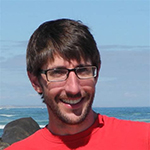 Kyle is responsible for leading the Centre and fostering it's aims together with the director and the strategic advisory board. He also leads a diverse group of Plant Evolutionary Ecologists and Biogeographers. The group's research spans from cross-biome and cross-continental studies of entire floras to detailed studies of individual clades. |
Earth Theme - Professor Simon Mudd Simon is co-lead for the Centre's Earth Theme. He is also a geomorphologist that uses quantitative methods to understand why the surface of our planet looks the way it does, what that reveals about the movement of sediment, water and nutrients, and how topography can be used to infer climate and tectonics. His work investigates mountains, hillslopes and coastal environments. He combines topographic analysis, numerical modelling, fieldwork, isotopic analysis to quantify dates and rates, and theory. |
Earth Theme - Professor Ed Mitchard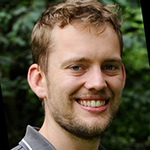 Ed is co-lead for the Centre's Earth Theme. He also develops and test new methods for using satellite data to map how the carbon storage of tropical forests and peatlands are changing. He aims to create more useful datasets so we can understand how tropical ecosystems are responding to climate change, and themselves causing/mitigating climate change. |
Life Theme - Dr Katerina Guschanski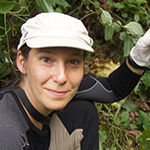 Katerina is co-lead for the Centre's Life Theme. She is an evolutionary ecologist interested in understanding evolutionary processes that lead to biological diversity within and among populations and species. Focusing on nonhuman primates, her group studies population dynamics, speciation, adaptation and character trait evolution by combining genetic and genomic tools with ecological, morphological and climatic data. Many primate taxa are threatened or endangered -their research aims to contribute to their conservation by providing valuable arguments and data for conservation efforts. |
Life Theme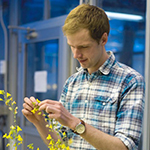 Alex is co-lead for the Centre's Life Theme. He is an evolutionary biologist interested in speciation and adaptation in flowering plants. I completed my honours degree in molecular plant sciences from the University of Edinburgh in 2008. His research includes the evolution of postglacial diversity in Euphrasia, the maintenance of chromosomal inversions in Mimulus, and the origins of diversity in tropical Begonia. |
Ecosystems Theme - Dr Nicholle Bell Nicholle is co-lead for the Centre's Ecosystems theme. Her research aims to help the global effort to protect the World's largest terrestrial carbon store: peatlands. We use a combination of high-resolution spectroscopic techniques, such as NMR and FT-ICR-MS, and next-generation sequencing to uncover the key roles microbes and molecules play in the carbon cycling processes in peatlands.
|
Ecosystems Theme - Dr Seb Hennige Seb is co-lead for the Centre's Ecosystems theme. examines the impact of climate change and pollutants on marine organisms and ecosystems, with particular focus on tropical and cold-water coral reefs. He explores how past events have impacted upon marine ecosystems and organisms, examine how organisms have adapted to survive in a wide variety of present day systems, and use aquaria experiments to predict how future projected changes will impact organism fitness. |
Society Theme - Dr Eugenia Rodrigues Eugenia is co-lead for the Centre's Society theme. is a social scientist trained at the Universities of Coimbra (Portugal) and York (UK). Her research interests are located in the fields of environmental sociology, and science and technology studies with a focus on environmental monitoring, public engagement and the use of ICTs in environmental assessments, and citizen science. She is developing research on new practices and notions of public participation, the digital and citizenship. |
Society Theme - Dr Peter Alexander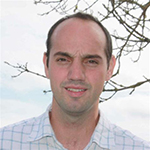 Peter is co-lead for the Centre's Society theme. group is interested in the interactions within national and global food systems and land use, combining social, economic and environmental considerations. The work explores the impacts of the global food system on environmental change, including climate change and biodiversity loss, as well as adaptation of land use to environmental change and food system consequences from land-based climate change mitigation actions |
Long Term Data - Professor Loeske Kruuk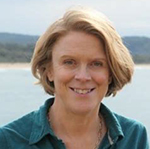 Loeske Kruuk is an evolutionary ecologist with a broad range of interests in how evolution works in natural populations. Her research focuses on the evolutionary ecology and quantitative genetics of wild animal populations. Thet aim to understand how both evolutionary processes and environmental conditions result in change over time. They work on a range of species, mainly using long-term studies of wild vertebrate populations with individual-level field data. Two key aims are to understand the genetic variance of fitness in wild populations, and the impact of current climate change on wild populations. |
Partner/Industry Engagement - Dr Luke McNally Luke McNally, uses a mixture of theoretical, statistical and experimental approaches to study the ecological and evolutionary dynamics of both our bacterial pathogens and commensals. One of the biggest changes that bacteria face is our use of antimicrobials and they are rapidly evolving resistance to these drugs. We aim to study how bacteria are evolving in response to this change in order to better guide the design of interventions to manage the evolution of antimicrobial resistance and limit its public health impact. |
Early Career Reseachers Network Guillaume Latombe's is a Lecturer in Environmental Change Biology in the Institute of Ecology and Evolution at the University of Edinburgh. He is an ecologist and a modeller, and his work is mostly in invasion science, macro-ecology and community ecology. His research is at the interface of community ecology, macroecology and invasion science.
|
Early Career Reseachers Network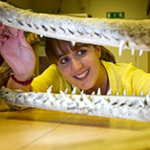 Deirdre McLean is an empirical ecologist and evolutionary biologist using a range of experimental systems and statistical analyses to understand the dynamics of communities. I am on the writing team of Ireland’s first national climate change assessment, the physical science basis.In my research I am applying ecological principles to understand and predict the evolution, spread and maintenance of antibiotic resistance in pathogenic bacteria |

